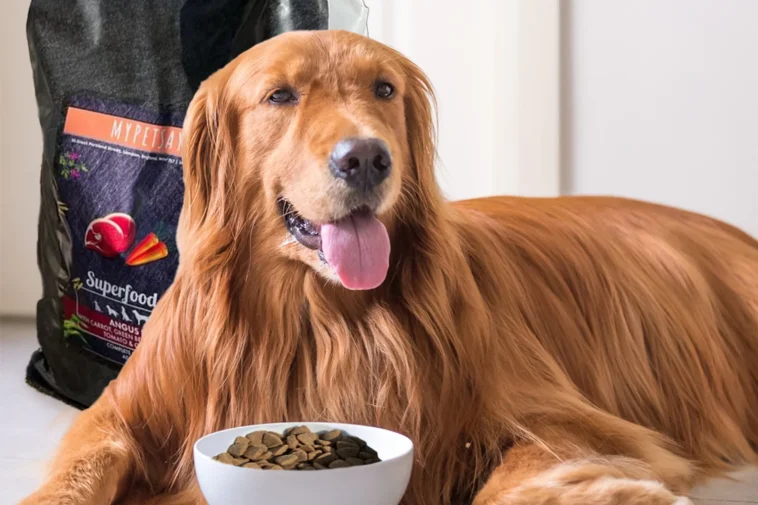Understanding your dog’s nutritional needs is essential for their health and well-being. However, there are many myths about dog nutrition that can lead to confusion or poor dietary choices. Here’s a look at some common nutritional myths about dogs and the facts that debunk them.
1. Myth: Dogs Only Need Meat in Their Diet
Fact: While dogs are omnivores and thrive on a diet that includes both animal and plant-based foods, they don’t need to eat only meat. A balanced diet for dogs includes proteins, fats, carbohydrates, vitamins, and minerals from various sources. High-quality commercial dog foods are formulated to meet these nutritional requirements, incorporating a mix of meat, vegetables, grains, and other ingredients.
2. Myth: Dogs Can Eat All Human Foods
Fact: Not all human foods are safe for dogs. Foods like chocolate, grapes, onions, garlic, and certain artificial sweeteners (e.g., xylitol) can be toxic to dogs. While some human foods can be safe and healthy in moderation (like carrots or apples), it’s crucial to research or consult a vet before introducing new foods into your dog’s diet.
3. Myth: Grain-Free Diets Are Always Better for Dogs
Fact: Grain-free diets are not necessarily better for all dogs. While some dogs may have allergies or sensitivities to grains, many dogs digest grains well and benefit from the nutrients they provide. Grain-free diets are sometimes marketed as a premium option, but they may not be necessary or beneficial for every dog. Consult your vet to determine if a grain-free diet is appropriate for your dog.
4. Myth: Raw Diets Are Superior to Cooked Diets
Fact: Raw diets, also known as BARF (Bones and Raw Food) diets, are controversial and can pose risks if not properly managed. Raw diets can lead to nutritional imbalances or bacterial infections if not prepared correctly. Cooked diets, when formulated to be balanced and complete, can be just as nutritious. Always consult a vet before transitioning to a raw diet, and ensure that it meets all of your dog’s nutritional needs.
5. Myth: Dogs Don’t Need Supplements if They Eat Quality Dog Food
Fact: Most high-quality commercial dog foods are formulated to provide all the essential nutrients your dog needs, reducing the need for additional supplements. However, certain conditions or health issues might require specific supplements, such as joint support for older dogs or additional vitamins for dogs with certain health problems. Always consult your vet before adding supplements to your dog’s diet.
6. Myth: Feeding Dogs Table Scraps is Safe
Fact: Feeding dogs table scraps can lead to obesity and nutritional imbalances. Many human foods are not suitable for dogs and can cause digestive issues or long-term health problems. It’s better to provide your dog with balanced dog food and occasional healthy treats designed for canine nutrition.
7. Myth: Dogs Can Eat as Much as They Want
Fact: Overfeeding can lead to obesity and related health problems, such as diabetes, joint issues, and heart disease. Dogs should be fed according to their size, age, activity level, and specific health needs. Follow the feeding guidelines provided by your dog food manufacturer and adjust portions as needed based on your dog’s weight and activity level.
8. Myth: Puppies and Adult Dogs Have the Same Nutritional Needs
Fact: Puppies and adult dogs have different nutritional requirements. Puppies need more calories, protein, and certain nutrients to support their growth and development. Puppy food is specially formulated to meet these needs. Adult dogs have different needs, and feeding them puppy food can lead to obesity. Ensure you’re feeding age-appropriate food for your dog’s life stage.
9. Myth: Homemade Diets Are Always Healthier
Fact: Homemade diets can be healthy if they are well-balanced and nutritionally complete, but they can also lead to deficiencies or imbalances if not properly formulated. Preparing a nutritionally complete homemade diet requires knowledge and careful planning. It’s essential to work with a vet or a pet nutritionist to ensure that your homemade diet meets all of your dog’s needs.
10. Myth: Dogs Can Drink Milk Like Humans
Fact: Many adult dogs are lactose intolerant and cannot properly digest milk. Giving milk or dairy products to dogs can cause digestive upset, including diarrhea and stomach cramps. It’s best to avoid giving your dog milk and stick to water and dog-safe treats.
Conclusion
Understanding the truth behind these common nutritional myths can help you make informed decisions about your dog’s diet and overall health. Providing a balanced, age-appropriate diet and avoiding harmful foods and practices are key to keeping your dog healthy and happy. Always consult your veterinarian if you have questions or concerns about your dog’s nutrition and dietary needs.


